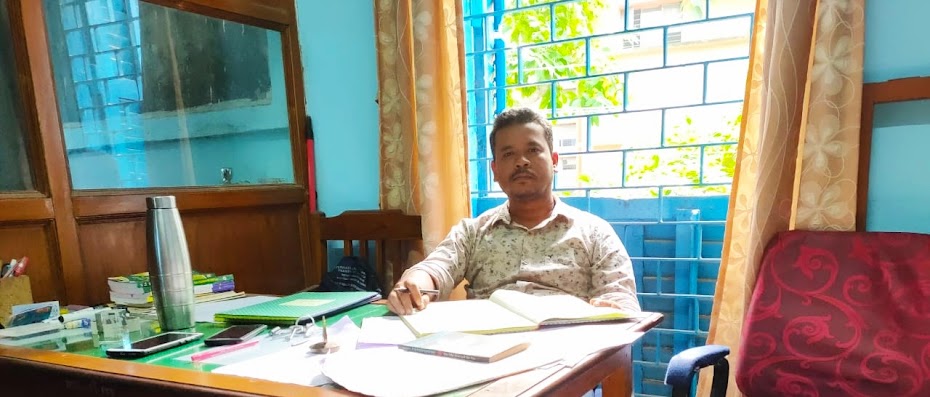Centre for Comparative Literature, School of Humanities, University of Hyderabad
Call for Papers
5th Researchers' At Work Conference (RAW.CON 2015)
9th - 11th September, 2015
"History, Literature, Translation: Bhasha Culture and its Pervasive Networks"
The intention of RAW.CON had always been to provide a forum for debate and discussions on research matters; new avenues of research and perspectives. RAW.CON provides space for researchers from around the country to meet, exchange ideas, share information, consult specialist resource persons invited to the conference. RAW.CON 2015 aims to bring together scholars to explore innovative ways of critically engaging with the aspects of literary productions, public life, and multiple modernities in India. The conference will explore the diverse means by which literature is constantly shaped, moulded, and discussed. The culture of enlightenment and colonial modernity with its conjunctional technologies not only ushered in an era of technological expressivity for public consumption but also influenced the pattern of production and reception. The advent of new knowledge along with new sensibility in the form of colonial modernity challenged old traditions, even in their efforts to understand and make meaning of them. Indigenous traditions of literary production were shunned until the newly forged self-reflexivity of the 'public' started revisiting, translating and rebuilding the vernacular networks. This conference aims to bring forward fresh academic intrusion by deliberating on the process of reworking those complex networks of Bhasha literatures and literary cultures which had been witnesses of successful and varied mutations.
The organisers have the following interrelated aims:
The first is to rethink assumptions about literary aesthetics. The vernacular literary traditions which flourished in the precolonial era and even in the early colonial times, had shown symptoms of a developing syncretic culture steeped in multiple linguistic, religious and cultural sensibilities. Such instances of syncretic or composite culture had been variously addressed and analysed. By underlining these aspects of vernacular literary traditions, histories, this conference aims to help the scholars to see literary traditions as cultural norm which, when comes under pressure from different factors, gets repressed and censored, becomes a living testimony of oblivion.
The second aim is to interrogate the relationship between various public interfaces of literary productions, their origin, pattern and the nature of growth. Histories of different Bhasha literatures in India are dotted with instances of such interfaces. Literature and all such aspects of public life like religion, politics, identity-community, reformatory movements and so on thus have engaged each other in a symbiotic relationship to produce a literature of their own. Literary movements, traditions, canons were built around these public activities and were challenged in the course of time to be replaced by new sensibilities. But this relationship, this public life of literature had been one of multiple mutations, turns and twists. Consequently, literature had been not only a centre for creative production but also of charges of seditions, of disrespect, of vulgarity. This conference aims to move beyond the notion of literature being 'mirror' or the 'lamp' and to create new ways of looking at it which will weave their interpretations along the anecdotes of its public life.
Third, the organisers hope to explore these questions in a way that connects as many literary, linguistic traditions and historiographies as possible so that a comparative understanding of recurring patterns (if any) can be observed besides providing the new research scholars a glimpse of varied realities which though invites academic curiosities but resists theorising through its multiple differences.
Topics may include (but are not limited to):
- The growth of syncretic traditions in literatures;
- Literary historigraphies;
- Public life of literature;
- Literature and performance;
- Literary activism and Popular Media;
- Colonial Modernity and literary Mutations;
- Role of Translations, Retellings, Adaptations in networking literatures;
- Religion and literary productions;
- Literature and socio-cultural reformations;
- Literature, Censorship, State and the charges of sedition, vulgarity;
- The role of Comparative Literature in India.
The organisers invite proposals from scholars working in all disciplines to apply. Please include the following information with your proposal:
a) Paper title
b) Name, institutional affiliation as researcher, and email address
c) Brief description of the proposed paper (up to 250 words) explaining the substance of the proposed paper, sources used, and topic's relationship to the conference themes
d) Please send your entries in doc or docx format only.
Conference Structure:
Each session will be about 1.5 hours long, consisting of four-five presenters, each speaking for up to 20 minutes, with 5 minutes discussion. The conference language is English. For pre-circulation to the invited respondents invited participants will be asked to submit papers of approximately 5,000 words in length by 1 st August 2015 along with a statement that the current work is free from plagiarism.
The conference also invites proposals from paper presenters for separate sessions of short films, documentaries, digital documentation and archival work on their fields of research. Proposals for this category are requested to be limited within a duration of 10-20 minutes.
Shared accommodation and food will be arranged for outstation participants. The conference committee may consider a limited number of minimum travel allowances depending upon the availability of funds.
The deadline for sending proposals is 1st May 2015. Both accepted and rejected proposals will be notified by individual mail by 10th May 2015.
Proposals and inquiries should be sent to RAW.CON Coordinators: raw.con2015@uohyd.ac.in
Mobile: +91 94 94 24 26 45




